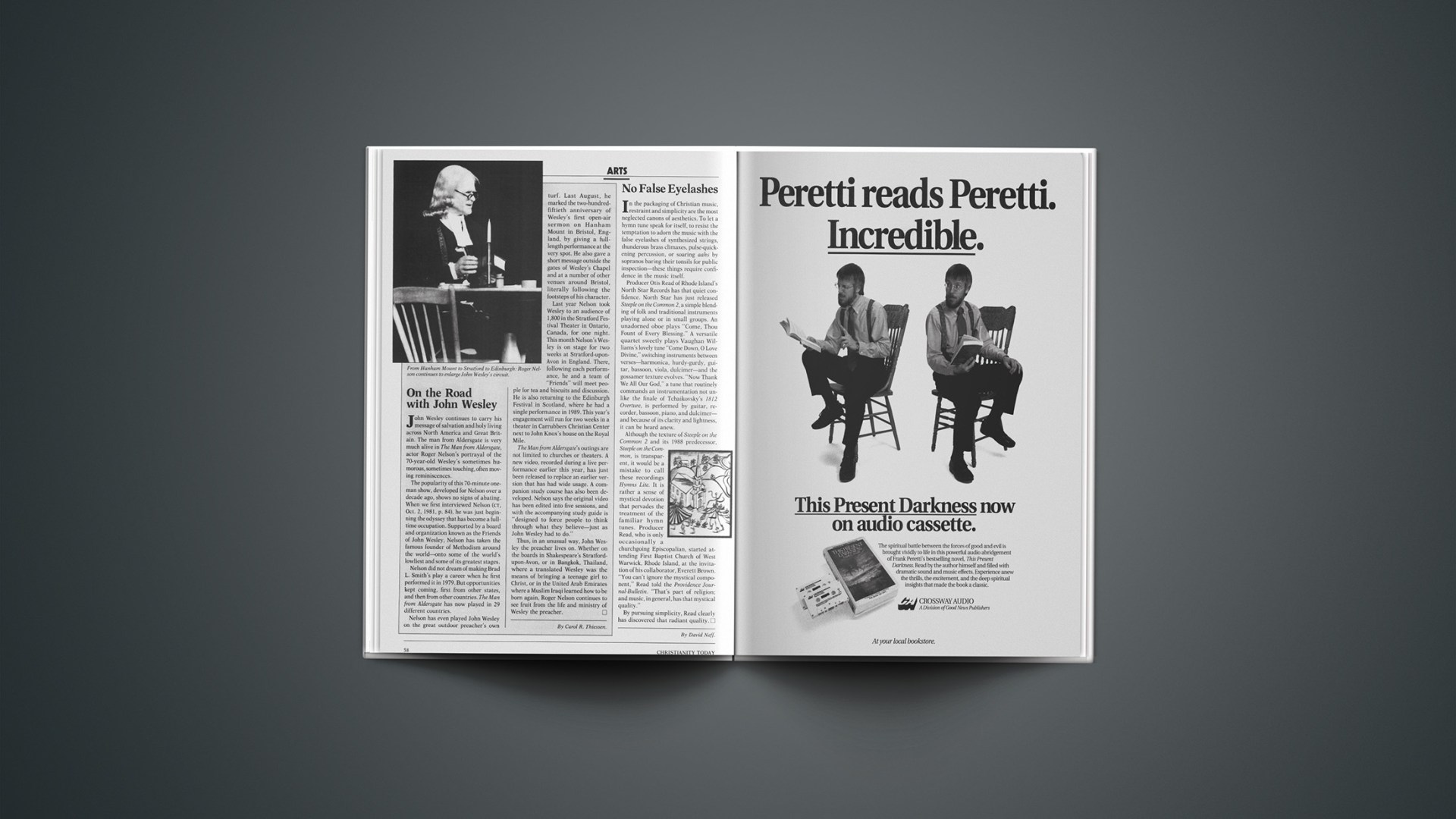In the packaging of Christian music, restraint and simplicity are the most neglected canons of aesthetics. To let a hymn tune speak for itself, to resist the temptation to adorn the music with the false eyelashes of synthesized strings, thunderous brass climaxes, pulse-quickening percussion, or soaring aahs by sopranos baring their tonsils for public inspection—these things require confidence in the music itself.
Producer Otis Read of Rhode Island’s North Star Records has that quiet confidence. North Star has just released Steeple on the Common 2, a simple blending of folk and traditional instruments playing alone or in small groups. An unadorned oboe plays “Come, Thou Fount of Every Blessing.” A versatile quartet sweetly plays Vaughan Williams’s lovely tune “Come Down, O Love Divine,” switching instruments between verses—harmonica, hurdy-gurdy, guitar, bassoon, viola, dulcimer—and the gossamer texture evolves. “Now Thank We All Our God,” a tune that routinely commands an instrumentation not unlike the finale of Tchaikovsky’s 1812 Overture, is performed by guitar, recorder, bassoon, piano, and dulcimer—and because of its clarity and lightness, it can be heard anew.
Although the texture of Steeple on the Common 2 and its 1988 predecessor, Steeple on the Common, is transparent, it would be a mistake to call these recordings Hymns Lite. It is rather a sense of mystical devotion that pervades the treatment of the familiar hymn tunes. Producer Read, who is only occasionally a churchgoing Episcopalian, started attending First Baptist Church of West Warwick, Rhode Island, at the invitation of his collaborator, Everett Brown. “You can’t ignore the mystical component,” Read told the Providence Journal-Bulletin. “That’s part of religion; and music, in general, has that mystical quality.”
By pursuing simplicity, Read clearly has discovered that radiant quality.
By David Neff.










